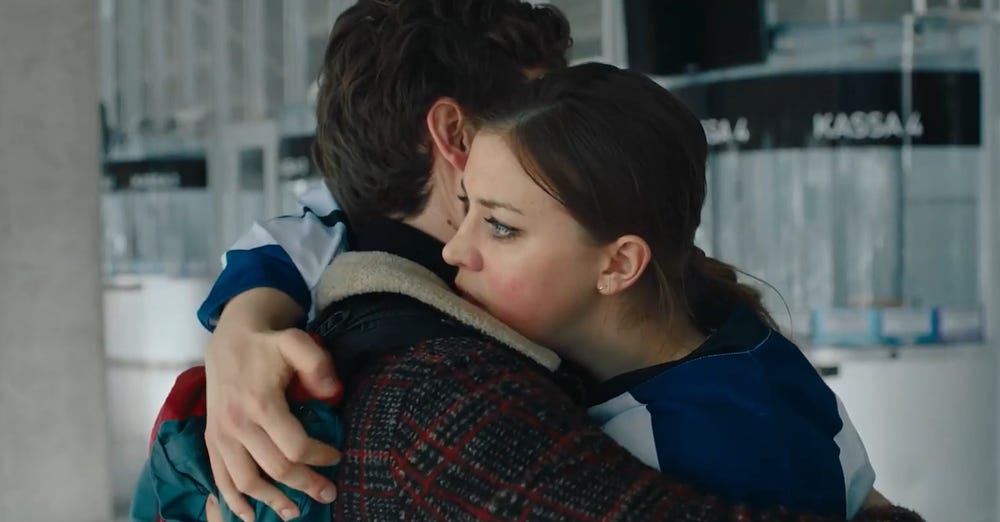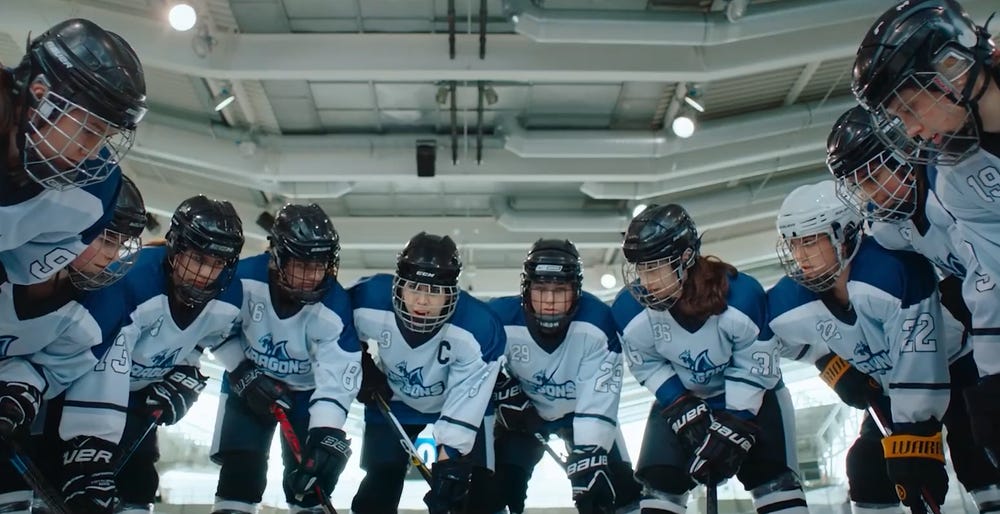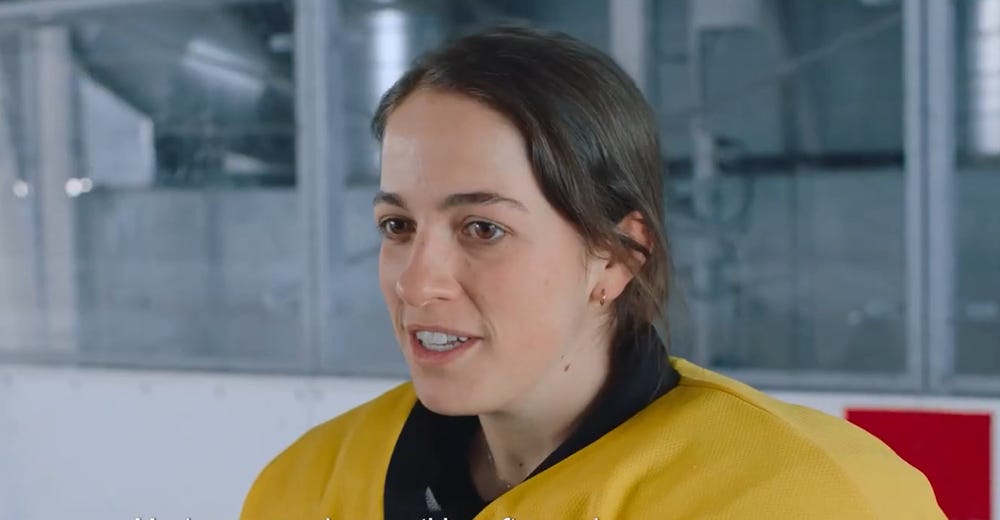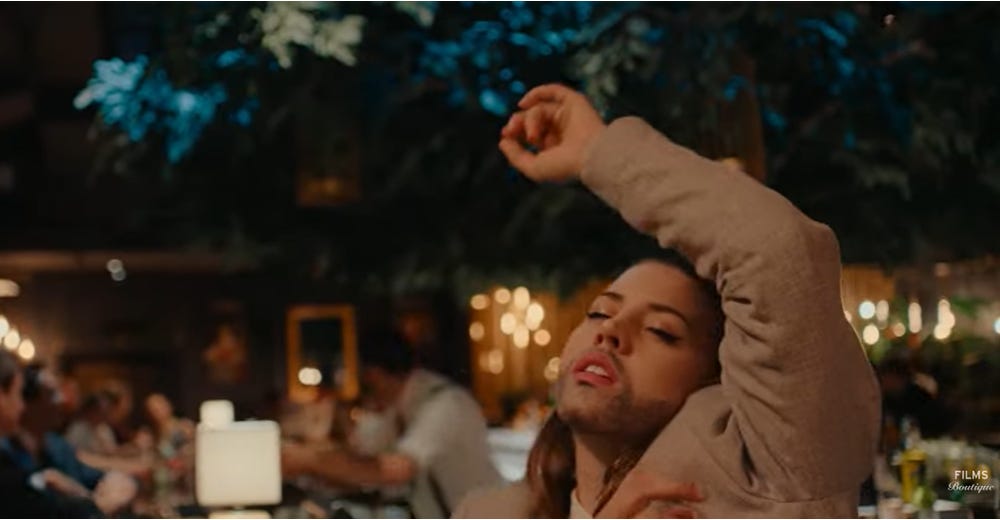breaking the ice
Film, 2022
Written and Directed By: Clara Stern
Don’t go into this thinking that it is a kind of hard core sports movie, because it really isn’t. This is a quiet, emotional character study that attempts to illuminate the world of a young person and her struggles with familial drama, anxiety, personal ambition, and gender dysphoria.
Sounds heavy? Well, it is at times, but at other moments it is joyous, triumphant and just downright silly, which mirrors nicely what this kind of journey towards self-discovery really is.
Mira (Alina Schaller) is captain of her semi-pro ice hockey team in Vienna, Austria. She works on her family’s ancestral vineyard, has a fractious relationship with her mother, and helps to take care of her grandfather who is developing dementia. In the background lurks sorrow – her brother Paul is missing and there’s an unknown tragedy in their past, causing a rift in their family.
Mira is talented but she’s so insular that she’s not reaching her potential, as either a player or a captain. When their coach recruits a star player, Theresa (Judith Altenberger), they slowly form a bond through hanging out after practices together. Mira’s brother Paul comes back into her life, and all three of them spend time at bars getting drunk and acting out strange personas designed to help Paul face the tragedy in his own life.
Mira’s nights out impact her life too – her ice hockey suffers, but she starts to push back against her mother’s coldness and develops real feelings for Theresa. She also, in the film’s most interesting theme, explores her non-binary side with others for the first time. There’s something deep and raw at play beneath her skin, and the more she accepts herself, the more attracted Theresa becomes to her. A delicate intimacy develops that is a counterpoint to the rough and tumble of the ice-hockey world.
In time though, we know the play acting must cease. Mira must find a way to bring this hedonistic side of her personality into balance with her life so she can keep progressing while not losing the things she loves. She also needs to find a way to bring Paul back to their family, at least long enough to start healing the rift that’s suspended them all in misery.
Alina Schaller succeeds in walking a difficult line between introversion and self-protection. In one scene, she is dressing for a night out and we see her in front of a mirror, hiding her breasts with her hands and tucking them behind her arms, an effort to explore her transmasc side. In another, she overcomes her reticence and celebrates with the team in the bus by lip syncing to Macklemore, her playfulness rising to the fore.
These scenes help us celebrate this journey with her, to really root for her in the battle between her past and her future. The fledgling relationship with Theresa might be fleeting, but it is an important step in bringing the real Mira alive. That they can use their sexual tension and emerging love to forge a successful partnership on the ice is an obvious but ultimately triumphant metaphor.
There are many storylines competing for attention, so much that it feels like we are watching four different films at once - the ice hockey, Paul and the family drama, Mira’s gender discovery, and the love story. While the complexity is admirable, the balance isn’t quiet right. I found myself wanting less Paul bar antics and more of Mira’s gender exploration. I suspect this is subjective based on how connected the viewer feels with each piece of the plot.
Whatever the path, Mira does end up where she needs to be, and becomes equipped to make the right decisions for herself going forward. It isn’t an ending that’s entirely wrapped up in a neat little bow, but it is genuinely satisfying. Seek this out!





